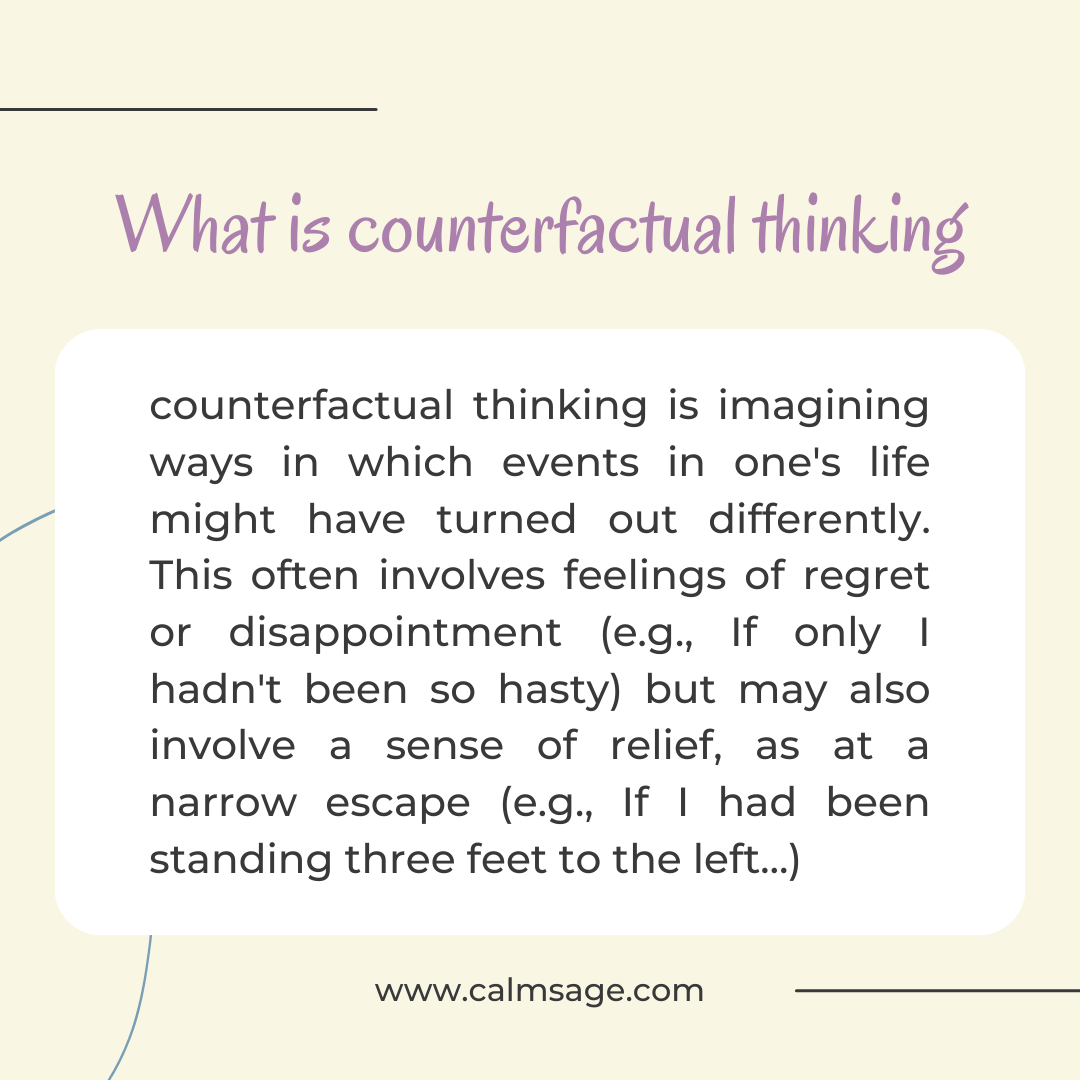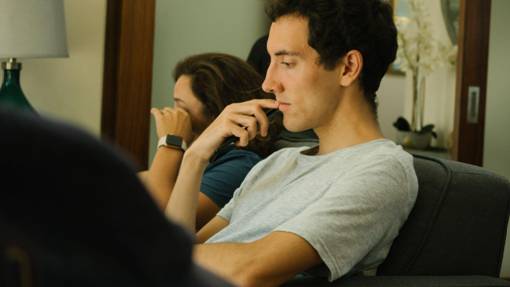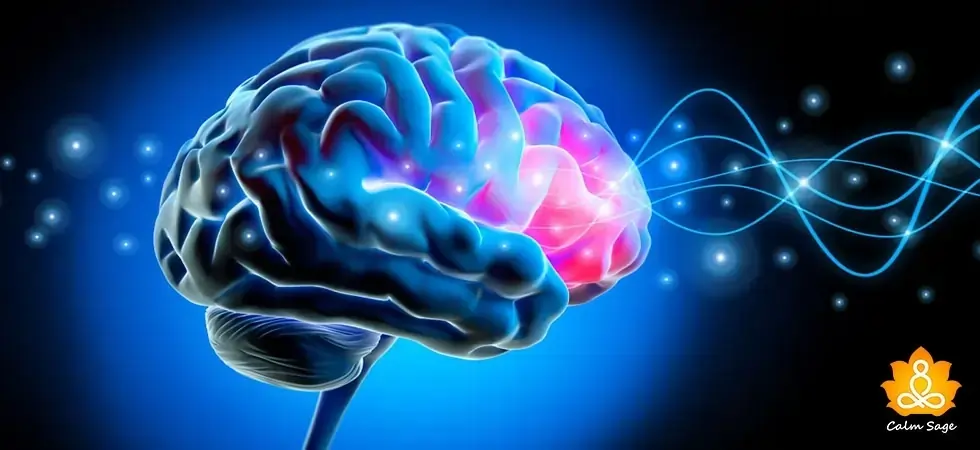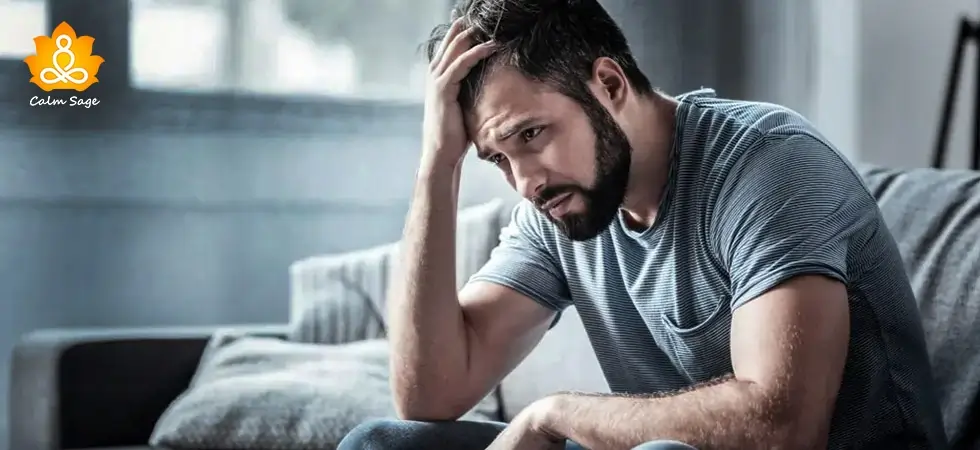Counterfactual Thinking And Its Effects On Your Decision-Making

When we talk about thinking in terms of psychology, there’s a lot to uncover. Today, we’re talking about the kind of thinking that makes you go, “What could have been” “What if…” or “If only…” – also known as counterfactual thinking. This kind of thought process leans more toward rumination and would send you into a spiral of envisioning what would have happened if you had made a different decision.

This is the sort of thought process that we all are guilty of. There have been times in my life when I thought about my decisions and ruminated on all “what ifs” regarding my choice. While it helped me learn from my mistakes and to make better decisions, it also sent me into anxiety about how I took care of my choices.
In this article, I’ll help you understand the types of counterfactual thinking we engage in, how it can benefit you, what effects it can have on your decision-making, and how you can change this kind of thinking for the better.
The Types of Counterfactual Thinking

When it comes to counterfactual thinking, there are two types of it that you need to know. One is the upward counterfactual thinking and the second is the downward counterfactual thinking. Let’s see what each of these thinking entails;
-
Upward Counterfactual Thinking
Upward counterfactual thinking is when you’re focused on how the past could have been better. It’s when you wish to go back to your past and change the choices you made. Some of the common examples of this kind of thinking can include ruminating or dwelling on past mistakes or missed opportunities, dwelling on a breakup where you wish you could have looked for the signs better or made changes to stop it from happening.
There’s even a study that found that this kind of upward counterfactual thinking was linked with depression.
-
Downward Counterfactual Thinking
The other type of counterfactual thinking is the downward one where you ruminate on how things – that happened in the past – could have been worse. In upward counterfactual thinking, you wonder about how things could have been different but always positively.
Unlike that, in downward counterfactual thinking, you’re focusing on how things could have turned out worse. Some of the common examples of this kind of thinking can include; a car accident or a near-miss crisis that you could have been a victim of but somehow came out unscathed.
Downward counterfactual thinking can also make you experience feelings of guilt or even survivor’s guilt where you think how fortunate you were, but another person wasn’t as lucky as you. This can make you spiral into worry, but at the same time, it can help you feel gratitude.
In a 2021 study, it was found that people who engage in downward counterfactual thinking were better able to regulate their emotions, especially people with anxiety.
Are There Any Benefits of Counterfactual Thinking?
Both types of counterfactual thinking are a part of our thinking process and decision-making process whether we like it or not. Moreover, this kind of thinking can act as a tool for us to light our path as we move forward.
When you engage in a counterfactual thinking process, you learn from your mistakes and learn to make better decisions in the future as it enables you to expect likely outcomes. It’s OK to engage in this type of thinking from time to time.
Another benefit of counterfactual thinking is that it allows you to be more creative as it encourages you to think outside the box. When you do this, you come up with ideas and solutions that others might not think of. It also allows you to introspect and learn how you can balance your past, present, and future.
The Risks of Counterfactual Thinking

Just like counterfactual thinking may have its benefits, it can also have potential risks. One of the biggest risks with this type of thinking is that it can make you feel stuck in a cycle of a “make-believe world” or it can make you obsess over “what could have been”, rather than what’s in your present. Doing this can hardly change your current reality, so isn’t it unhealthy?
When you’re constantly thinking about “what could’ve been” and “if only” then it can trap you in a cycle of regret and rumination to the point where you begin to neglect your present. Eventually, it may cause you to become indecisive and anxious.
How to recognize that counterfactual thinking is harming you? Watch out for these signs;
- You’re fixated on your thoughts so much that you’re ignoring your current life
- You’re losing sleep and neglecting your health because you’re too focused on “what ifs” and “what could have been”
- You’re struggling with anxiety and worry about situations and events that didn’t happen
- You’re being too hard on yourself because of your past decisions
- You’re feeling unhappy and depressed about what happened in your past
How to Change Your Counterfactual Thinking?

If you find yourself stuck in a loop of counterfactual thinking or find yourself dwelling too much on the “what ifs…” then it’s important to consider changing your thinking process. When you focus on your thoughts of the present moment, you can figure out what to do next and how to move forward instead of being stuck at a point in the past.
One of the best ways to change your thinking is to notice when you start dwelling on the past and practicing a mindfulness trick called the “STOP Technique”. The STOP Technique can help you stop fixating on one point in your past and focus on the present moment’s thoughts instead.
How to do it? Simple!
Stop what you are doing
Take a breath
Observe your present moment
Process mindfully
When your thoughts begin to spiral, stop whatever you’re doing and sit down. Take a pause and inhale a deep breath to calm your tumultuous thoughts. Observe what’s happening in the present; your thoughts, your breaths, your feelings, the sensations you’re experiencing, what you see, what you hear, what you smell, etc. And then, move forward with the new thoughts in your mind.
You might not always find it easy to direct your attention, but keep noticing and keep practicing. Even if you have to do it every few minutes, keep doing it.
A gentle reminder for you! Be patient and kind to yourself. There could be a thousand mistakes you make, but it’s important to understand that it’s OK to make mistakes. That’s how you learn, after all. While perfection is something we strive for, it’s important to remember that it’s OK to not be perfect all the time. Just be compassionate and kind!
Final Thoughts…
Counterfactual thinking can be beneficial in some situations – for example, it can help us learn from our mistakes, help us make better choices, and even assist in problem-solving – however, it can also have negative effects on our decision-making. If you’re stuck in counterfactual thinking, then you may begin to ignore your present and fixate on the past that you can’t change.
Maintaining a balance between healthy introspection and unhealthy rumination is important. You can achieve this balance by practicing mindfulness and grounding techniques such as the STOP technique or the 5-4-3-2-1 grounding technique to stay in the present moment whenever your mind begins to wander into the past.
When you’re aware of your thinking patterns, you can easily break them, and change your thinking patterns from negative to positive.
I hope this article helped you understand what counterfactual thinking is and how it can affect your decisions. For more, you can write to us at info@calmsage.com or leave us a message on our social media.
Take care.




















